Although we are in the business to make money, we are also in the business to save you money. As a company, we’ve always strived to be as competitive with our prices in hopes to save you money. One of the things out of our control is whom you ultimately hire to install your pool equipment. We’ve heard many horror stories about incompetent swimming pool installers over the years, which prompted our “How To Find a Great Pool Guy” blog. Proper installation allows for smooth operation and it also maximizes the lifespan of your pool equipment. Adversely, poor installation can result in early equipment failure, or worse.
The pool owner can install a variety of pool equipment by himself. In fact, we recommend that you get out there and familiarize yourself with your pool as often as possible. Check out our blog, “Can I Repair My Own Pool Equipment,” to get a better idea of what pool equipment can be installed by homeowners.
However, some pool equipment requires a licensed installer. For example, in order to maintain the manufacturer’s warranty on heaters and heat pumps, the installation must be performed by a licensed installer. Failure to do so voids your entire warranty. Feel free to bookmark our main How To Guide page. You may be surprised by how much you can get done on your own without hiring an installer.
To Install or Not To Install
 Every year are above ground pools. Above ground pools are very convenient for a lot of families across the U.S. As a result, we often get a lot of calls from customers who are asking us to recommend installers in their areas. Inyo Pools provides no installation services so we are often unable to provide you with an installer in your area. Although we cannot necessarily choose the installer for you, we can definitely provide you with the tools to help you make the best decisions.
Every year are above ground pools. Above ground pools are very convenient for a lot of families across the U.S. As a result, we often get a lot of calls from customers who are asking us to recommend installers in their areas. Inyo Pools provides no installation services so we are often unable to provide you with an installer in your area. Although we cannot necessarily choose the installer for you, we can definitely provide you with the tools to help you make the best decisions.
Did you know that depending upon your state, in order to install an above ground pool, you also need a license? I didn’t know that either, to be honest. In fact, I doubt most pool owners do. To help make our customers aware of laws and statutes in their own states, we compiled a short list of current laws governing above ground pools. Please be aware that although we may not have your state listed, your state may have similar laws mandating the same or similar things. We recommend that you take fifteen minutes and research your state’s laws governing above ground pool installation prior to hiring an installer.
Florida
 Florida- the Sunshine State and home to Inyo Pools. I figured I’d start here. In 2012, a bill was introduced to Florida’s legislature that expanded the scope of the state’s current pool service license. It also eliminates a provision that was considered a major barrier for new technicians. In 2012, an estimate of as many as 4,000 service techs were operating illegally across the state.
Florida- the Sunshine State and home to Inyo Pools. I figured I’d start here. In 2012, a bill was introduced to Florida’s legislature that expanded the scope of the state’s current pool service license. It also eliminates a provision that was considered a major barrier for new technicians. In 2012, an estimate of as many as 4,000 service techs were operating illegally across the state.
One of the most important provisions in the bill calls for licensing of service professionals who perform construction, remodeling, and installation or repair of equipment. Additionally, the bill mandated that professionals who perform cleaning, maintenance, and water treatment be licensed as ell. That meant, no matter the type of work you were having done on your pool, the installer had to be licensed.
Unfortunately like a lot of good bills in Florida, this one failed. Currently, if a technician in Florida cleans your pool, tests your water, or installs an above ground pool, they are not required to have a license. However, hiring one that does certainly is a bonus and will give you a peace of mind.
Connecticut 
Beginning in 2016, above ground pool installers working in Connecticut will need to hold a special license. Intending to curb job site errors, the governor signed a bill establishing the Above Ground Pool Assembler’s License. Once this law comes into effect in April, it will join two other pool specific licenses in the state- one for the builders and the other for the service technicians.
The bill was introduced as a response to the growing number of code violations pertaining to hard wiring and bonding. The new Assembler’s License does not allow individuals to perform electrical, piping, plumbing, or heating work. That means, just because an installer is licensed to install your pool, it does not mean they are licensed to install your heater. It only calls for the installation of above ground pools.
An above ground pool is defined as, “Any structure intended for swimming that is assembled above ground and is greater than 24 inches in depth.” Failure to obtain a license can result in heavy fines, civil penalties, and you may even be blacklisted from applying for a license in the future. After this law was passed, Ray Rescildo, chairman of CONSPA’s Government Relations Committee said, “If you’re in a state that doesn’t have a licensure, you should seek it out before it is brought about on someone else’s terms.”
New Jersey 
If you’re in New Jersey and you’re planning on installing an above ground pool in your yard, even an inflatable one, please make sure you obtain the proper permits. Installations of any above ground pool in New Jersey requires, at least, one permit. There are also security regulations that could apply. Although state lawmakers urged retail stores to make customers aware of the permit requirement, there’s no way to monitor how effective the sales associates are at creating this awareness. A permit is required for any structure that holds more than 24 inches of water. To some, this may even be a definition of a “kiddy pool”.
The code is very clear. It applies to any structure that is intended for swimming or recreational bathing that contains over two feet of water. This includes in ground and above ground pools, hot tubs, and spas. A separate permit is required if there is an electrical component involved, such as your filter or heater.
Although cities in NJ are reactive and don’t have officials driving around looking for violations, once they are made aware of illegal pools, they take the necessary actions to make sure the pool owner obtains the proper permit(s). On a bad day, you can receive a fine anywhere from $1 to $2,000 per event. However, code officials in NJ are looking for compliance, not money.
California 
California is one of the most interesting states in the country with regards to rules and regulations for pools and water supply in general. One of the reasons is because of the severe drought that is happening along the West coast. Currently, a permit is required for the installation of any body of water permanently installed on your property where the depth of the water is 18 inches or more. In comparison to New Jersey regulations, California is a bit stricter. However, if your pool is above the ground and has less than 5,000 gallons, no permit is required.
In addition, a permit is required for any electrical work or underground plumbing installed regardless of whether the pool or spa is above ground or below the surface of the ground. I know you’re thinking that a permit is different from a license, and you’re absolutely correct.
If your contractor is obtaining the permit, they are required to have a valid state contractor’s license and up to date workers’ compensation policies or a letter of exemption with the city. If you’re a pool owner and obtaining the permit on your own, you’re mandated to provide a list of subcontractors with valid state contractor’s licenses before the permit is issued.
Also, before a permit is issued, home owners must submit a set of plans containing a plot plan with the location of the pool, showing the distances away from structures and property lines. All structural plans must be signed with a wet seal by a California Licensed Engineer.
Homeowner Permits
All the information I have come across regarding licensure for pool installations is geared towards the installer and not necessarily the homeowner. This doesn’t mean proper permits don’t need to be attained. Nor does it mean there aren’t any regulations specific to the homeowner either. In most cases, homeowners can pull the permit, like in California and Florida, if they’re installing the equipment themselves. If you’re hiring an installer, then proper licensing is required.
At the end of the day, Inyo Pools is in the business to make your pool journey a lot easier and more enjoyable. We never want to see our customers getting ripped off, whether in prices for equipment, or because of poor installation. Please keep in mind that although we have only listed regulations in a few states, each state should have their own set of laws governing pools. Before purchasing your pool, get your ducks in a row. Research the local and state policies that affects your home and pool. Talk to several contractors before choosing one. If you plan ahead, we have no doubt that your pool installation will go without a hitch.

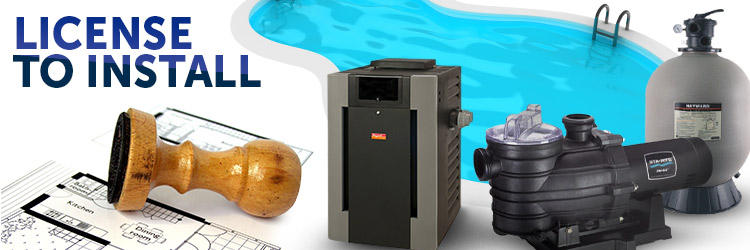


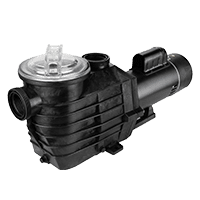
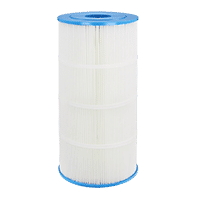
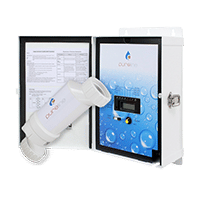
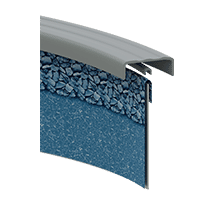

Leave a Reply